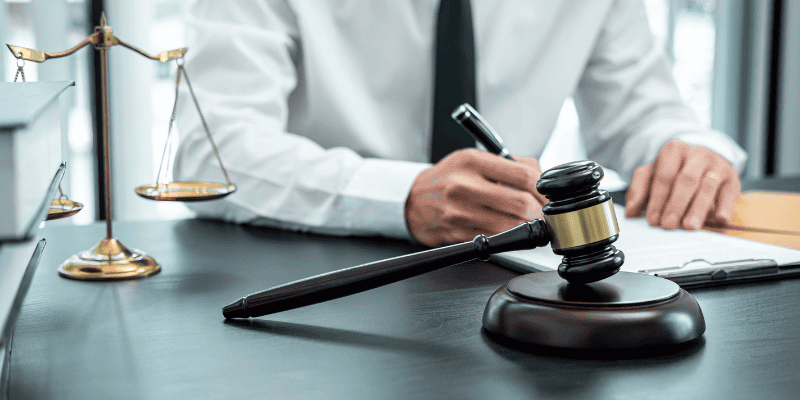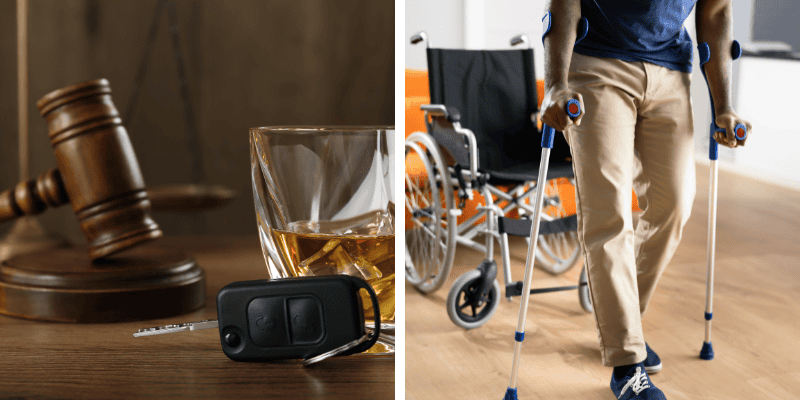4.9 Rating
Google REVIEWS
Leaders in Georgia Personal Injury Law Since 1995
What is the difference between gross negligence and negligence in an auto accident?
When you’re involved in an auto accident, the terms “negligence” and “gross negligence” may come up, but what do they really mean? Understanding the distinction between these two legal concepts is crucial, especially if you’re pursuing compensation for your injuries. In Georgia, the difference between ordinary negligence and gross negligence can significantly impact the outcome of your personal injury case, potentially influencing the amount of damages you may receive.
This article delves into the key differences between negligence and gross negligence in the context of auto accidents and how these concepts are treated under Georgia law. Additionally, we will explore how proving gross negligence can potentially lead to greater compensation and even punitive damages.

What is Ordinary Negligence?
Ordinary negligence
This refers to the failure to exercise the level of care that a reasonably prudent person would have exercised in a similar situation. It occurs when someone acts carelessly or fails to act in a way that a reasonably careful person would, leading to an unintended accident or injury.
For example, if a driver runs a red light and causes an accident, this would be considered ordinary negligence. The driver didn’t intend to cause harm but failed to exercise the caution necessary to prevent an accident.
In an auto accident case, ordinary negligence is often the basis for a personal injury claim. To secure compensation, you must prove that the other party was negligent, which involves establishing the following four elements:
- Duty of Care: The defendant owed a legal duty of care to the plaintiff. In auto accident cases, this duty is usually the obligation to drive safely and follow traffic laws.
- Breach of Duty: The defendant breached that duty by failing to act as a reasonably prudent person would under similar circumstances. Running a red light is an example of a breach of duty.
- Causation: The defendant’s breach of duty directly caused the plaintiff’s injuries. For instance, the accident caused by running a red light led to your injuries.
- Damages: The plaintiff suffered actual harm or loss due to the defendant’s actions. This could include physical injuries, medical bills, lost wages, and emotional distress.
If you can establish these four elements, you may be entitled to recover compensatory damages for your injuries and losses.
What is Gross Negligence?
Gross negligence takes the concept of negligence a step further. It is not just carelessness or a failure to exercise due care, but rather an extreme lack of care that shows a reckless disregard for the safety or lives of others. Gross negligence is more than a mistake; it is behavior that goes beyond ordinary negligence and borders on intentional harm.
In auto accident cases, gross negligence might be present if, for example, a driver was intoxicated and driving at an excessively high speed, leading to a collision. Another example could be a driver who, in a fit of road rage, deliberately rams into another vehicle, causing injuries.
Gross negligence is characterized by:
- Reckless Conduct: Actions that show a blatant disregard for the safety of others.
- Willful or Wanton Behavior: Conduct that is so reckless it appears to be an intentional disregard for others’ rights or safety.

Impact of Gross Negligence on Compensation
The distinction between ordinary negligence and gross negligence is significant because it can affect the type and amount of compensation you may receive. In cases of gross negligence, you might be eligible for additional damages beyond those typically awarded in negligence cases.
Punitive Damages: In Georgia, if you can prove gross negligence, you may be entitled to punitive damages. Unlike compensatory damages, which are intended to make the injured party whole, punitive damages are meant to punish the wrongdoer and deter similar conduct in the future. These damages are awarded on top of compensatory damages and can be substantial, depending on the severity of the gross negligence.
Proving Gross Negligence in Georgia
Proving gross negligence is more challenging than proving ordinary negligence. Since gross negligence involves a higher standard of carelessness, the evidence must demonstrate that the defendant’s actions were not just careless, but recklessly indifferent to the consequences.
For example, if a driver was heavily intoxicated and caused a severe accident, your attorney would need to present evidence showing that the driver’s intoxication was so extreme that it constituted gross negligence. This could include witness testimony, police reports, and expert analysis.

Why You Should Consult an Experienced Attorney
Given the complexities involved in proving gross negligence, especially in the context of an auto accident, it is crucial to consult with an experienced personal injury attorney. At Scholle Law Car & Truck Accident Attorneys, we have extensive experience handling cases involving both ordinary and gross negligence. We understand the nuances of Georgia law and know how to build a strong case to maximize your compensation.

Real-Life Examples of Gross Negligence in Auto Accidents
To further illustrate the difference between negligence and gross negligence, consider these real-life scenarios:
- Ordinary Negligence: A driver is distracted by their cellphone and rear-ends the car in front of them. The driver did not intend to cause harm but failed to pay attention, leading to the accident.
- Gross Negligence: A driver, under the influence of alcohol, speeds through a residential neighborhood at 90 mph, losing control and crashing into another vehicle. This behavior shows a reckless disregard for the safety of others, qualifying as gross negligence.
In the second scenario, the injured party could pursue punitive damages in addition to compensatory damages due to the gross negligence displayed by the intoxicated driver.

Conclusion: Protecting Your Rights in Georgia
Understanding the difference between negligence and gross negligence is vital for anyone involved in an auto accident. While both forms of negligence can lead to compensation, gross negligence can result in higher awards, including punitive damages. However, proving gross negligence requires a thorough understanding of the law and a strong evidentiary foundation.
If you or a loved one has been injured in an auto accident and you believe gross negligence was involved, don’t hesitate to contact Scholle Law Car & Truck Accident Attorneys. We are here to help you navigate the legal process and fight for the compensation you deserve. With our extensive experience in Georgia personal injury law, we can assess your case, gather the necessary evidence, and advocate on your behalf to secure the best possible outcome.
FAQ’s
Can I seek punitive damages if gross negligence is proven in my auto accident case?
Yes, if gross negligence is proven in your auto accident case, you may be eligible to seek punitive damages in addition to compensatory damages. Punitive damages are intended to punish the wrongdoer and deter similar behavior in the future.
How do I prove gross negligence in an auto accident case?
Proving gross negligence requires demonstrating that the at-fault party’s actions were not just careless but recklessly indifferent to the consequences. This can involve presenting evidence such as witness testimony, police reports, and expert analysis to show that the defendant’s conduct was willful, wanton, or malicious.
What are some examples of gross negligence in an auto accident?
Examples of gross negligence in an auto accident include driving under the influence of alcohol or drugs, excessively speeding in a residential area, or deliberately causing a collision out of road rage. These actions show a reckless disregard for the safety of others.
How does gross negligence impact the compensation I may receive in an auto accident case?
Gross negligence can significantly impact the compensation you may receive. In addition to compensatory damages for your injuries and losses, proving gross negligence may entitle you to punitive damages, which are awarded to punish the at-fault party and deter similar conduct in the future.
Should I consult an attorney if I believe gross negligence was involved in my auto accident?
Yes, it is crucial to consult with an experienced attorney if you believe gross negligence was involved in your auto accident. An attorney can help you understand your legal rights, gather the necessary evidence, and build a strong case to maximize your compensation, including pursuing punitive damages if applicable. Scholle Law Car & Truck Accident Attorneys have extensive experience in handling such cases and can guide you through the process.
